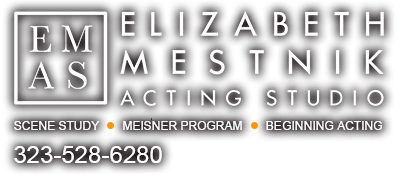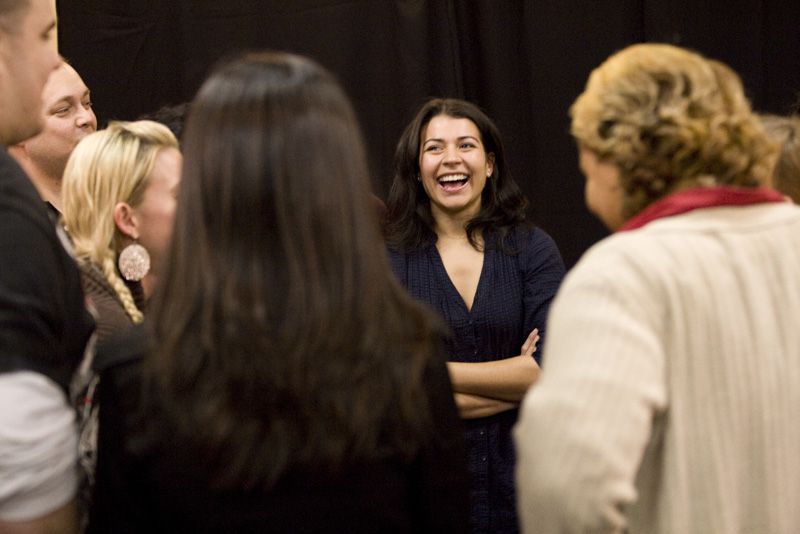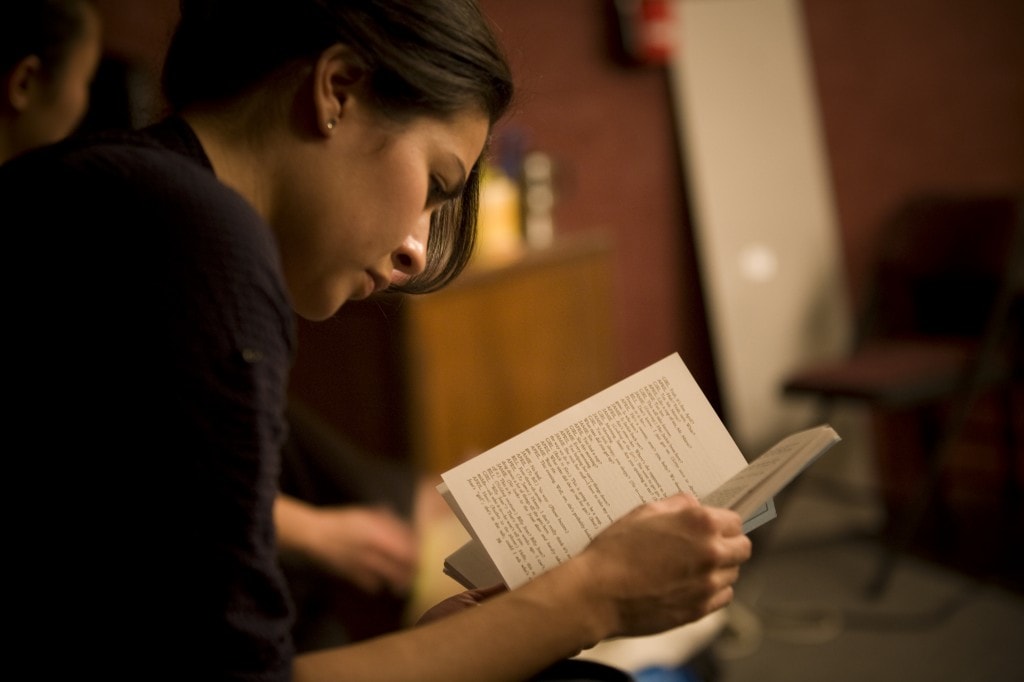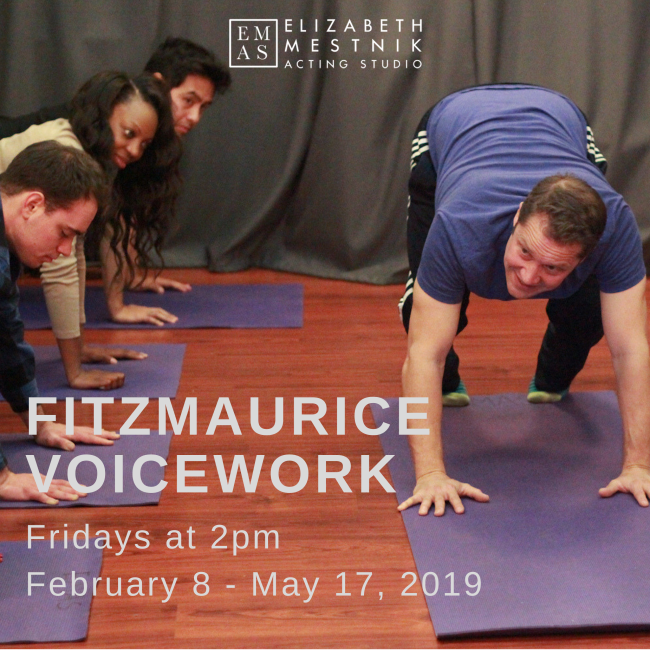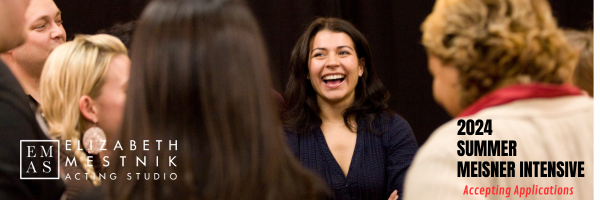Like any professional field, the acting industry has its own terminology, commonly-used abbreviations, and slang. Below is a quick cheat sheet for the working actor that introduces some of the common terms used by agents, directors, producers and actors themselves.
ACTION:
The term that is used when you are to begin the scene or copy. It usually indicates the camera is rolling
ACTOR’S EQUITY ASSOCIATION (aka EQUITY):
Founded in 1913 it is the labor union that represents more than 45,000 Stage Actors and Stage Managers in the United States.
A.D.:
The Assistant Director in a film or theater production.
ADR :
Automated Dialogue Replacement. Dialogue added to a scene in post production. Also called “looping”.
AFTRA:
Also known as The American Federation of Television and Radio Artists. It is a national labor union representing over 70,000 performers, journalists and other artists working in the entertainment and news media. AFTRA’s covers broadcast, public and cable television (news, sports and weather; drama and comedy, soaps, talk and variety shows, documentaries, children’s programming, reality and game shows); radio (news, commercials, hosted programs); sound recordings (“non-broadcast” and industrial material as well as Internet and digital programming.
AGENT:
An individual whose job is to represent an actor’s work to various casting directors, producers, and directors; and set up audition appointments. A big part of their job is negotiating contracts for their clients. The usual commission is 10%. Agents receive their payment as a percentage of the jobs booked.
AUDITION
An audition is where you will go to try out to get a part in a film, television or theater project. Actors read from the script or side, sing, dance, or do a monologue. The director or casting director considers if they match up with a character in the project.
AVAIL:
As in “On Avail”. It means available. A courtesy situation extended by performer or agent to a producer indicating availability to work a certain job. Avails have no legal or contractual status.
BACKGROUND:
Another term for Extras. Background actors have no speaking lines and are found filling in the background of a scene. There are different pay rates for Background actors in both SAG and AFTRA.
BOOKING:
When an actor accepts a booking, it is a legally binding verbal commitment that the actor will show up and perform.
BREAKDOWNS:
A character description of all the roles being cast in that particular project. Agents receive these breakdowns and then submit their actors on projects.
BUY- OUT:
This is a one- time payment or flat fee for a project that will not provide residuals. Buy outs are a standard agreement in all non union commercial work.
CALL TIME:
This is the time you are required to be on set. DO NOT BE LATE or it may be your last call time for that production.
CALLBACK:
A callback is when they ask back specific people from the first audition to audition again, to make a decision to cast them for a part in their project.
CASTING DIRECTOR (CD):
The Casting Director is hired by the producer or director. They audition and help choose all the speaking role actors in movies, television shows, and musicals/plays. They also serve as the liaison between directors, actors, and their agents, and they are responsible for negotiating deals with agents and for obtaining contracts for each hired actor. However, they rarely hire actors directly, but make suggestions to the producer/director.
CLOSE UP:
A tight shot of the face. Be aware of how the camera is framing you.
COLD READING:
Unrehearsed reading of a scene, usually at an audition.
COMMISSION:
When an agent or manager gets you in for a project and you book the role, that agent is entitled to a percentage of your pay. This is their commission on the project.
COPY
The script for a commercial or voice over.
COVERAGE
All camera shots other than the master shot; coverage might include two-shots and close-ups.
COVER SHOT :
An additional or extra shot of a scene, shot in addition to the master shot. Shot from a different angle, lighting, etc., and used to enhance the master shot, or to better establish a scene, setting, etc.
CUT!
The verbal cue for the action of the scene to stop. At no time, may an actor call, “cut!”
DAY PLAYER:
This is a performer hired on a daily basis for television, industrial and films. This term is used in SAG and AFTRA contracts and both unions have different pay scales. Traditionally speaking a day player will have more than 5 lines.
DEMO REEL:
This is a sample of your work on film or TV. There are also audio demo reels for voice-overs.
DIRECTOR:
The coordinator of all artistic and technical aspects of any production.
DIRECTOR OF PHOTOGRAPHY (D.P.) –
Supervises all decisions regarding lighting, camera lenses, color and filters, camera angle set-ups, camera crew and film processing.
DOLLY:
A piece of equipment that the camera sits on to allow mobility of the camera.
DOLLY GRIP (Grip)
The crew member who moves the dolly.
DOUBLE:
A performer who appears in place of another performer, i.e., as in a stunt.
EXTRA:
Background performer, used only in non-principal roles.
FIRST A.D.
First Assistant Director; person responsible for the running of the set. Gives instructions to crew and talent, including calling for “first team,” “quiet,” “rehearsal,” and “take five.”
FREELANCING:
Working with more than one agent at the same time. An actor has not signed any contracts. This is more common in New York, and not allowed in Los Angeles.
HEADSHOT:
This is an 8×10 color photo which is needed to submit with a resume to get into an audition or casting call.
HOLDING FEE:
A fee paid by the advertiser to the talent, in order to hold the commercial for broadcast at a later date.
HONEY WAGON:
A towed vehicle containing one or more dressing rooms, as well as crew bathrooms.
INDEPENDENT CONTRACTOR
For most non-union commercials and jobs where a stipend is offered, not a contractual rate, you will be known as an independent contractor. An independent contractor is responsible for paying their own taxes on that particular job; it is not taken out of the negotiated fee.
INDUSTRIAL:
Non-broadcast film or video, usually of an educational nature.
INSERTS :
Shots, usually close -ups of hands or close business, inserted into previously shot footage.
INT. (Interior):
The abbreviation for Interior – In a script it means a scene shot indoors.
“IN” TIME:
The actual call time or start time; also, return time from a break.
LINE PRODUCER
The producer responsible for keeping the director on time and budget; generally the most visible producer actually on the set.
LONG SHOT (LS):
A camera shot which captures the performer’s full body.
LOOPING: (aka ADR)
An in-studio technique used to fix dialogue already performed during principal photography by matching voice to picture.
MANAGER:
Similar to agents but they typically assist with career development and advise their clients on business and artistic decisions, as well as assisting in finding an agent. They usually take 15% commission. For more established actors Managers help with finances, publicity and other business matters.
MARK;
The exact position(s) given to an actor on a set to insure that he/she is in the proper light and camera angle; generally marked on the ground with tape or chalk.
MASTER SHOT
A camera shot that includes the principal actors and relevant background activity; generally used as a reference shot to record the scene from beginning to end before shooting close-ups, over-the-shoulders, etc.
OFF-CAMERA (OC or OS)
Dialogue delivered without being on screen.
ON HOLD:
Also known as First Refusal. When a producer likes you for a certain project you get put On Hold. It is a courtesy to let you know of a possible booking for that project and to let you know what dates to “hold” in case it leads to a booking.
OPEN CALL:
This is an audition where anyone who fits the requirements for the project can attend regardless if they have agent representation. Please be smart and only attend open calls you are right for.
PRODUCTION ASSISTANT (PA):
The Production Assistant on a particular project who is in charge of many different areas. Usually they will be the point person for the talent on set.
PER DIEM
Literally means “per day”. It is used in agreements as a daily allowance, usually for living expenses while traveling in connection with one’s work or being employed at a distance from one’s home. For example, if touring there usually is a daily per diem for food.
PILOT
A test run of a first episode of a television series idea. A pilot is an idea for a show. Actors are assembled, a pilot is shot and then the process of testing and selling the project begin.
PRINCIPAL
This is a major character in a particular project. They are at a higher pay scale than a day player and the part tends to be larger.
PRODUCER
This is someone who finds financing for and supervises the day-to-day decision making in regards to budget, equipment, location, etc of a play, film, or TV project.
RESIDUALS:
Fees paid to the actor each time a union project is re-aired. Usually pertains, to commercials, voice-overs, TV programs, and Film.
RESUME:
A list of your acting credits, training, and any other talents you think might be worth mentioning. This is a one page document, typed out and attached to the back of your headshot.
SAG:
Also known as the Screen Actors Guild is the nation’s largest labor union representing working actors. The Guild exists to enhance actors’ working conditions, compensation and benefits and to be a powerful, unified voice on behalf of artists’ rights. With 20 branches nationwide, SAG represents nearly 120,000 actors who work in motion pictures, television, commercials, industrials, video games, Internet and all new media formats.
SCALE:
Refers to the minimum amount which must be paid for a defined job. It is established in the union contracts for particular types of jobs, and can be found on all the union websites.
SCREEN TEST:
This is a filmed scene to show an actor’s ability for a specific project. It is done far along in the casting process on the actual set and with other actual cast members, usually at the producer’s request.
SESSION FEE
This is payment for the amount of time put in on set or in the recording studio for voice-overs, usually calculated in days. Residuals will come later.
SIDES:
Pages or scenes from a script, used in auditions or (if on a film set) those scenes being shot that day. Sides can be anywhere in length from a few lines to a number of pages depending on the part that is being cast.
SLATE
For on camera auditions and voice-over auditions you will be asked to slate. This is simply an introduction of who you are where you state your name and sometimes your agency. Make sure to relate directly to camera. Keep it simple and charming.
SPOT:
A commercial is often referred to as a spot.
SPEED! :
A verbal cue that the audiotape is up to speed for recording.
SPEC (Speculative):
Used most often to describe a speculative piece being pitched to others, ie Spec Short (film),.
STORYBOARD:
Usually done in commercials and animation and is actually a sequence of pictures that reflect the action taking place in a scene.
SUBMISSION:
It is the submitting of particular actors headshots and resumes for particular jobs. Submissions are done by agents and by the actor themselves
TAFT-HARTLEY:
A federal statute, which allows 30 days after first union employment before being required to join a Union.
TAKE:
The clapboard indication of a shot “taken” or printed.
TELEPROMPTER:
The brand name of a device that enables a broadcaster to read a script while looking into the camera lens.
THEATRICAL:
TV shows or feature film work, as opposed to commercials.
THREE BELLS!:
An audible warning for QUIET because a scene is about to be filmed.
TIGHT SHOT :
Framing of a shot with little or no space around the central figure(s) of feature(s); usually a close-up.
TRACKING SHOT:
A shot taken while the camera is moving, either on a dolly or a mounted on a moving vehicle.
TRADES:
Short for “trade papers” – The newspapers and periodicals such as the Hollywood Reporter and Variety that specifically feature information on the entertainment industry.
TREATMENT:
Longer version of a Synopsis of a story for a film. More detailed outline of the plot, characters, high points of a film.
TURNAROUND:
The number of hours between dismissal one day and call time the next day..
TWO-SHOT:
A camera framing two persons.
UNDER FIVE (U/5):
This is a performer hired on a per project basis for television, industrial and films. An U/5 characterizes someone who has 5 or less speaking lines.
UPGRADE:
The promotion of an extra performer in a scene to the category of principal performer.
VOICE OVER
This is the recording of a narrative to accompany a filmed commercial or TV spot. There are also voice-overs used on the radio known as radio commercials. Voice-overs are also used in the dubbing of foreign films.
WAIVER
This is when a union gives special consideration to certain cases and allows a production to deviate from standard union contract, so that the production can continue successfully.
WRAP:
The conclusion of the production. The end.
ZOOM:
A camera technique with a special lens to adjust the depth of a shot, accomplished without moving the camera.

